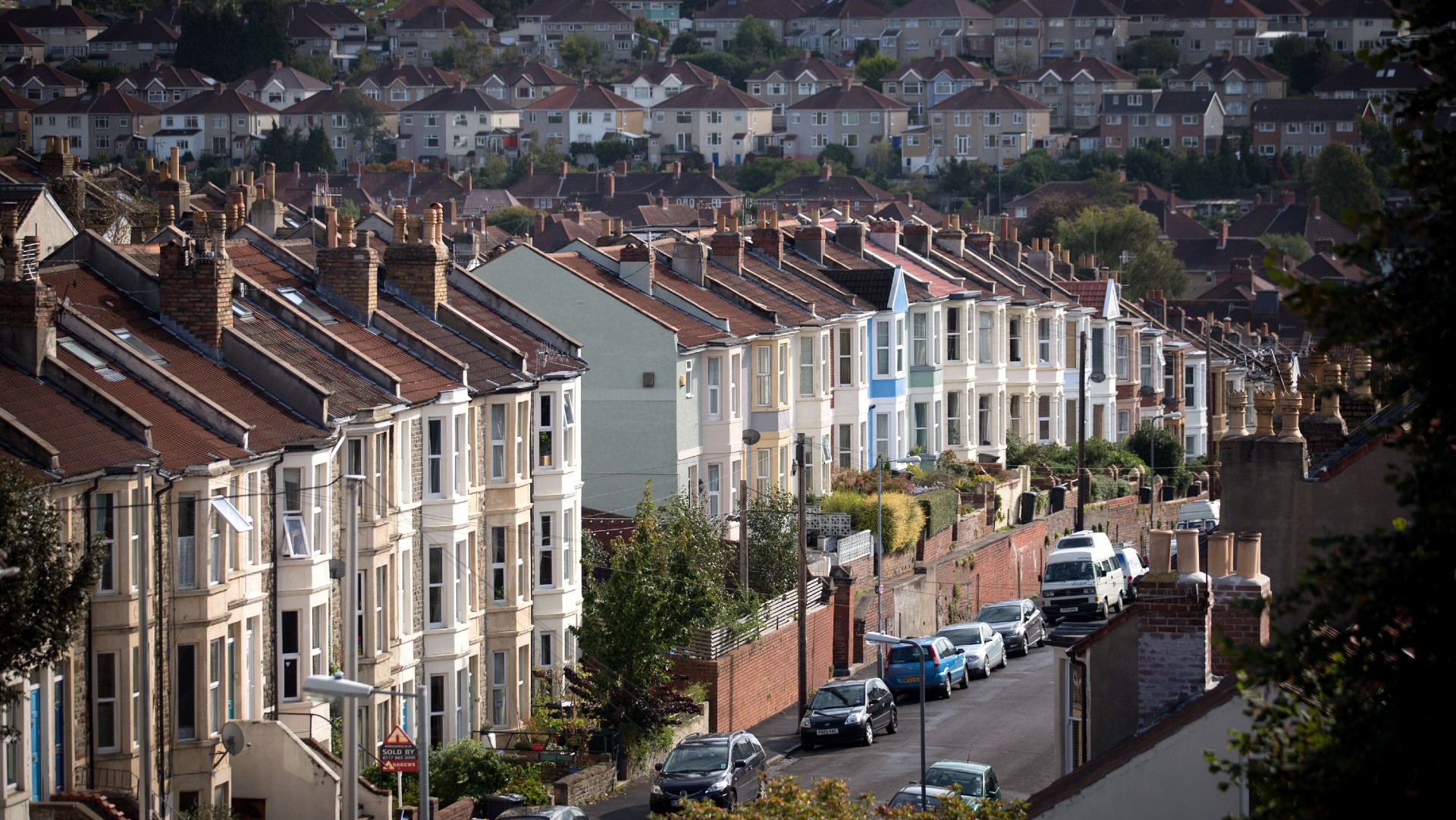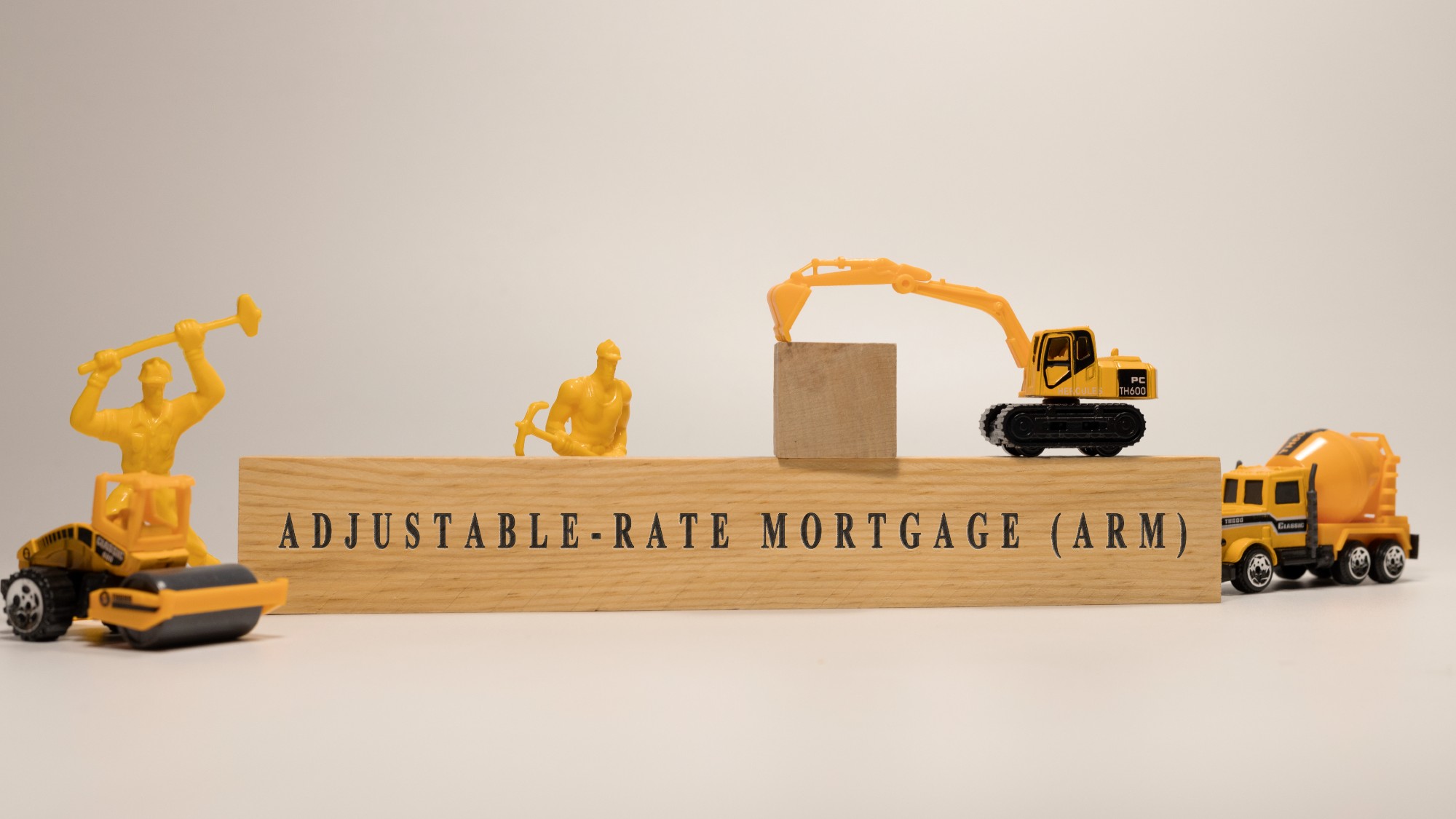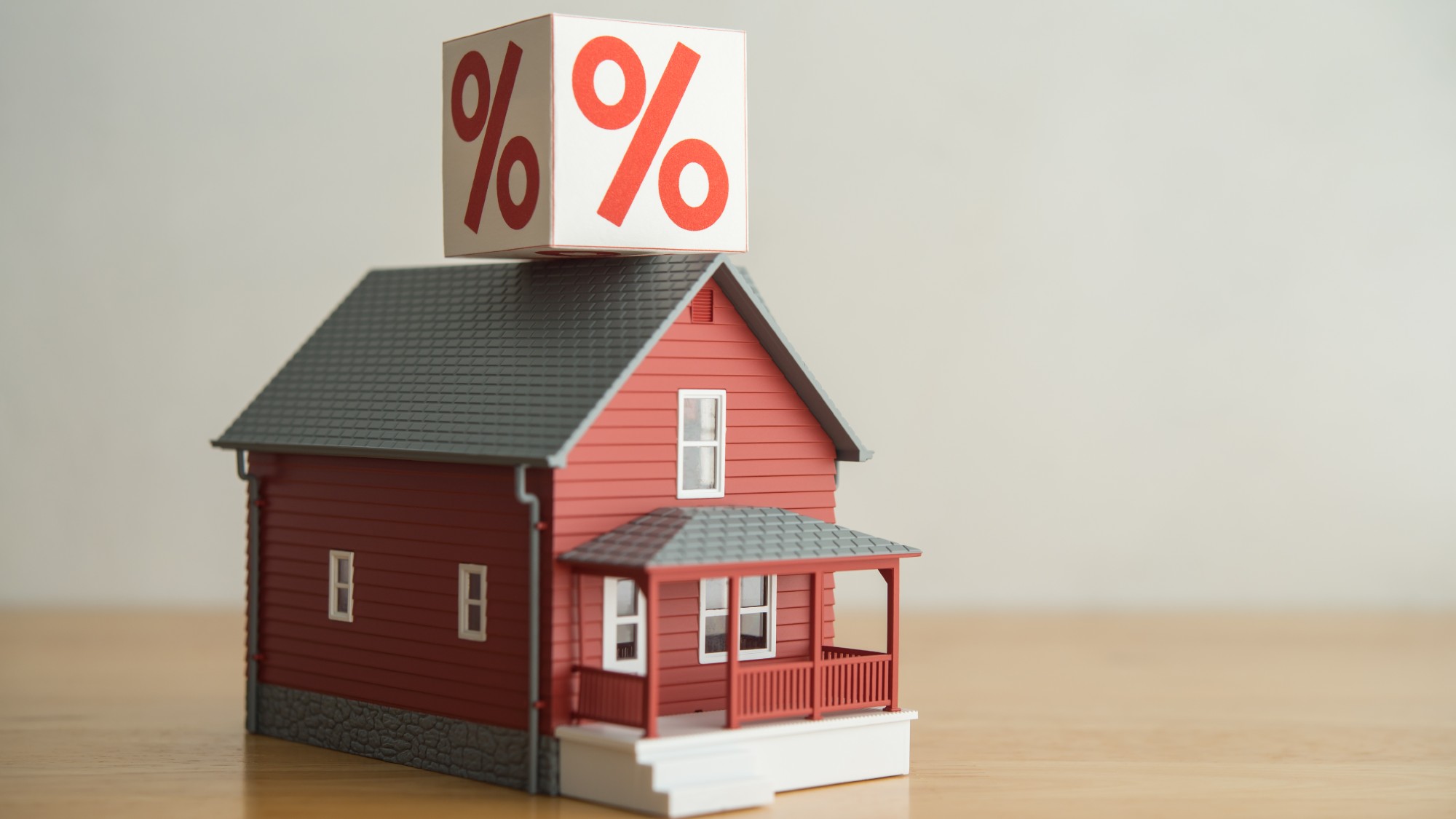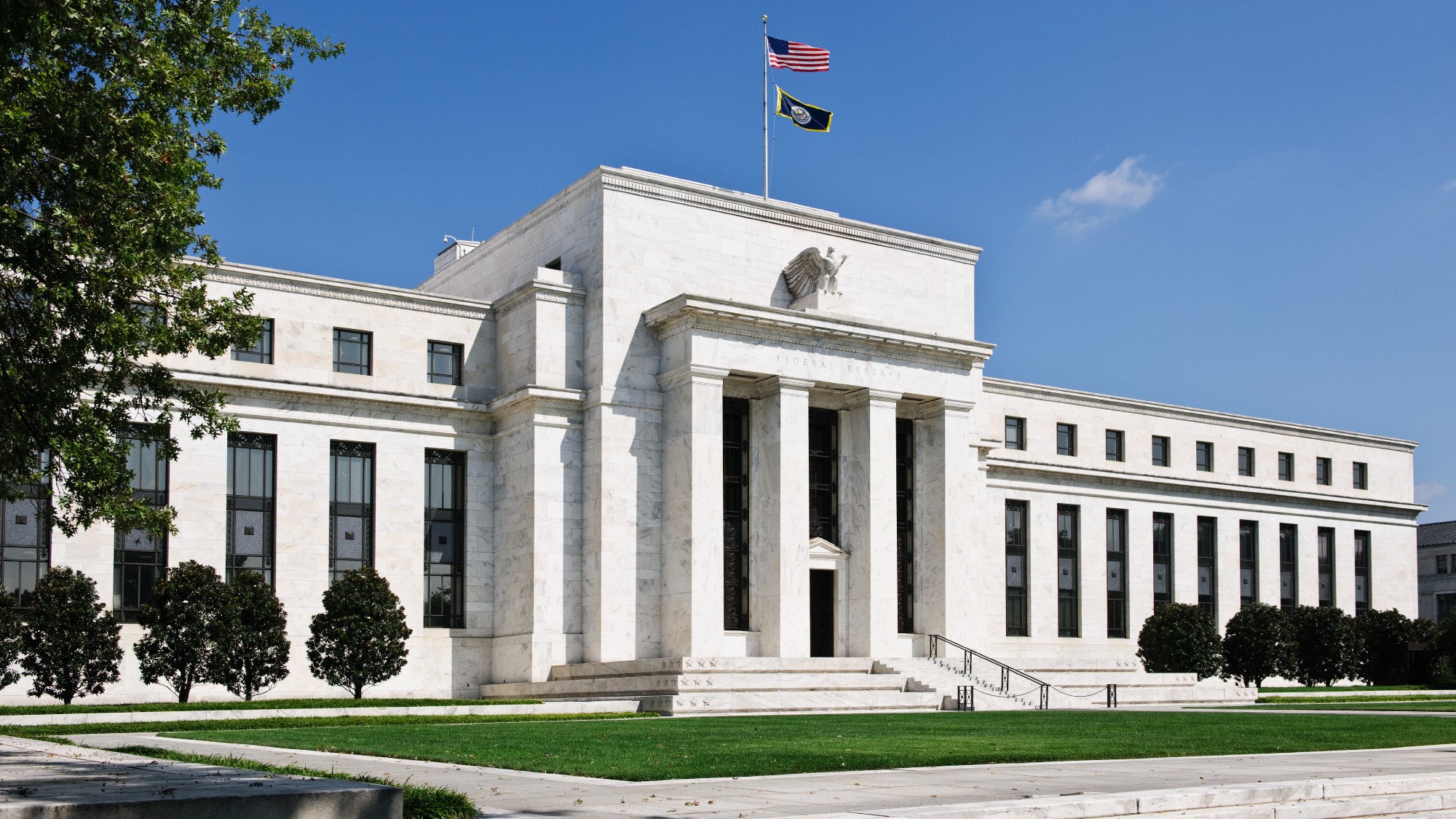Early repayment fees: does forking out to remortgage pay off?
Homeowners considering switching mid-deal as mortgage rates rise may face hefty charges

A free daily email with the biggest news stories of the day – and the best features from TheWeek.com
You are now subscribed
Your newsletter sign-up was successful
The average rate for a two-year fixed mortgage has risen to nearly 6% despite government efforts to calm the financial markets.
Lenders temporarily withdrew more than 40% of mortgage products last week after Chancellor Kwasi Kwarteng’s mini budget fuelled fears that the Bank of England would raise interest rates to higher levels than expected.
Although many of the bigger banks are now offering new deals, price revisions are increasing mortgage costs. The average two-year fix had already risen from 2.34% at the start of last December to 4.74% on 23 September, and climbed even higher to reach 5.97% yesterday.
The Week
Escape your echo chamber. Get the facts behind the news, plus analysis from multiple perspectives.

Sign up for The Week's Free Newsletters
From our morning news briefing to a weekly Good News Newsletter, get the best of The Week delivered directly to your inbox.
From our morning news briefing to a weekly Good News Newsletter, get the best of The Week delivered directly to your inbox.
And with further interest rates expected over the coming year, many homeowners are weighing up the cost of securing a new fixed rate deal even if their current mortgage is not due to end soon.
‘Batten down the hatches’
“The most obvious course of action to guard against a mortgage rate rise is to take cover and batten down the hatches,” said the HomeOwners Alliance.
Locking down a fixed rate mortgage can “give you a period of budgeting certainty”, the consumer advice site continued. Homeowners coming to the end of their deal can lock in the best deals now, as “lots of lenders’ offers are valid for six months”.
Switching to a better deal may also pay off even if you have more than six months left on your current deal and get hit with an early repayment charge.
A free daily email with the biggest news stories of the day – and the best features from TheWeek.com
Some fees “can be huge”, warned The Money Edit, but “this doesn't mean you shouldn't consider it as the longer-term savings can be significant”, especially if you have a big mortgage debt. “You need to do the maths,” the site added.
Calculating the cost
First, calculate the cost of repaying your mortgage early. Rather than a flat rate fee, the charge is “usually calculated as a percentage of the balance outstanding”, said Rupert Hargreaves at MoneyWeek. The cost can also vary depending how far you are into your current deal.
Although this “large lump sum” might seem like “a daunting amount to pay upfront”, Hargreaves wrote, “repaying early could save you a fortune in interest charges”. You may pay more interest on the new deal in the short-term but could potentially save thousands over the life of the product if mortgage rates soar before you were originally due to refinance.
Gambling on rates
Ultimately, quitting a deal early to remortgage is a “gamble”, said Hargreaves. “You simply won’t know if it was a good idea until a year has passed and you can see what happened to interest rates.”
The events of recent weeks have shown how “the economic picture can completely change in just a few hours”, and “that can lead interest rate predictions to fluctuate hugely”, he added.
MoneySavingExpert agreed that “there are no guarantees” and that “without a crystal ball, we don't know how much rates will rise by”.
The HomeOwners Alliance advised that before making a decision, “it’s a good idea to speak to a broker about your options”, as they can “run through the costs and potential savings with you”.
Hollie Clemence is the UK executive editor. She joined the team in 2011 and spent six years as news editor for the site, during which time the country had three general elections, a Brexit referendum, a Covid pandemic and a new generation of British royals. Before that, she was a reporter for IHS Jane’s Police Review, and travelled the country interviewing police chiefs, politicians and rank-and-file officers, occasionally from the back of a helicopter or police van. She has a master’s in magazine journalism from City University, London, and has written for publications and websites including TheTimes.co.uk and Police Oracle.
-
 Bondi, Democrats clash over Epstein in hearing
Bondi, Democrats clash over Epstein in hearingSpeed Read Attorney General Pam Bondi ignored survivors of convicted sex offender Jeffrey Epstein and demanded that Democrats apologize to Trump
-
 Are Big Tech firms the new tobacco companies?
Are Big Tech firms the new tobacco companies?Today’s Big Question Trial will determine if Meta, YouTube designed addictive products
-
 El Paso airspace closure tied to FAA-Pentagon standoff
El Paso airspace closure tied to FAA-Pentagon standoffSpeed Read The closure in the Texas border city stemmed from disagreements between the Federal Aviation Administration and Pentagon officials over drone-related tests
-
 Six ways to boost your finances in 2026
Six ways to boost your finances in 2026The Explainer It’s not too late to make a new year’s resolution to finally get organised money-wise
-
 Could a part-and-part mortgage help you on to the property ladder?
Could a part-and-part mortgage help you on to the property ladder?The Explainer Combining repayment and interest-only mortgages could become more popular as part of a push towards more flexible lending
-
 Why it’s important to shop around for a mortgage and what to look for
Why it’s important to shop around for a mortgage and what to look forThe Explainer You can save big by comparing different mortgage offers
-
 What are portable mortgages and how do they work?
What are portable mortgages and how do they work?the explainer Homeowners can transfer their old rates to a new property in the UK and Canada. The Trump administration is considering making it possible in the US.
-
 What’s an adjustable-rate mortgage and what are the risks?
What’s an adjustable-rate mortgage and what are the risks?The Explainer Buyers are increasingly willing to take the gamble of a changing rate
-
 How will Fed rate cuts affect the housing market?
How will Fed rate cuts affect the housing market?the explainer An anticipated series of Federal Reserve cuts could impact mortgage rates
-
 What to do if you want to move but don't want to give up your low mortgage rate
What to do if you want to move but don't want to give up your low mortgage ratethe explainer 30-year mortgage rates are currently averaging 7% — and homeowners who secured rates closer to 3% during the pandemic are reluctant to sell their homes
-
 What is the Federal Reserve and what does it do?
What is the Federal Reserve and what does it do?The explainer The decisions made by the United States' central banking system have very real economic effects